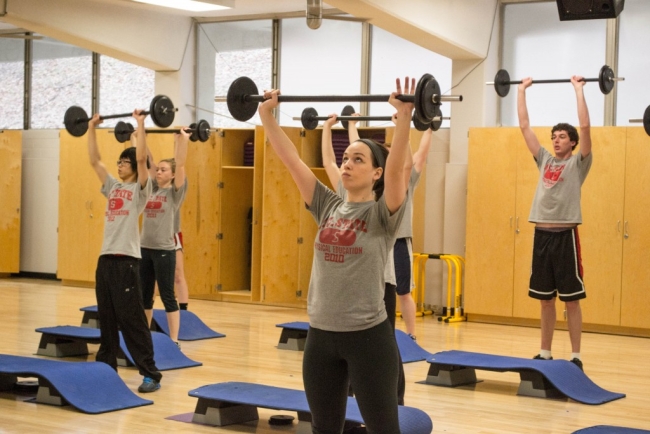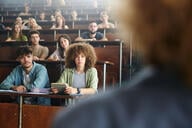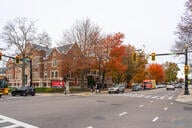You have /5 articles left.
Sign up for a free account or log in.

Students lift weights in North Carolina State's recreational facilities.
North Carolina State
College is a balancing act, and it can be hard to manage the demands of classwork while staying healthy and fit.
But spending an afternoon at the gym might yield positive results in the library, a new study finds. When college students exercise more, they don’t just get healthier -- they are also more likely to succeed academically.
The study, conducted by researchers at North Carolina State University, looked at 20,000 students’ recreational activities during the 2013-14 school year. For every extra hour that students exercised, their odds of graduating (or returning the following year) increased by 50 percent.
And even in small amounts, exercise can help: for every one-hour increase in weekly physical activities, researchers found, students’ GPAs increased by 0.06.
“It’s a somewhat small increase,” said Jason DeRousie, co-author of the study and NC State’s assistant director of assessment. “But a small increase in activity does have a positive impact.”
Students’ class years also mattered. The relationship between exercise and GPA was stronger for freshmen and sophomores, and weaker for juniors and seniors.
Recreational activities included time spent on the recreation center, group fitness and intramural sports. Nearly half of students participated in recreational activities less than once a week, while 19.1 percent participated between once and twice a week. Only 1.4 percent participated five or more times a week, while 16.7 percent never participated.
The findings fit well with the cultural moment on college campuses: students are particularly focused on mental health, and many understand how exercise affects their well-being, said Heather Sanderson, co-author of the study and NC State’s associate director of university recreation.
“We see the benefits of exercise on anxiety and depression and stress,” she said. “There has to be a connection to academic success.”
While past studies have looked at similar trends, the researchers say that most don’t control for other factors that contribute to academic success. The new study controls for factors like high school GPA, SAT scores and demographic factors.
Going forward, Sanderson and DeRousie hope to delve deeper into that connection: Does the type of activity matter? Does playing an intramural sports boost grades more than an afternoon at the gym?
And in the meantime, they hope administrators will use their findings to create resources for students. Many students may see a link between exercise and academic success, but perhaps they’ll be more motivated seeing their instincts backed up by numbers.
“We can take these findings and promote these things that students probably knew were good,” DeRousie said. “It gives us a systematic way to give students the extra nudge.”



